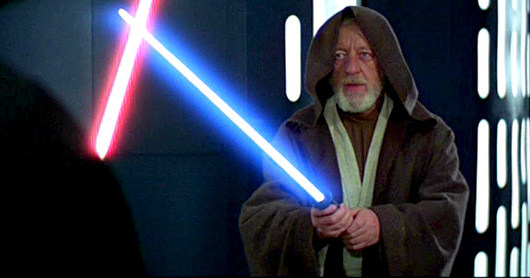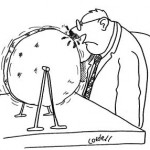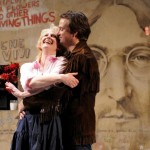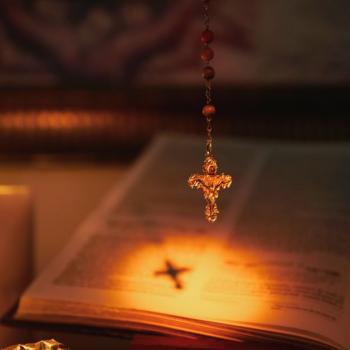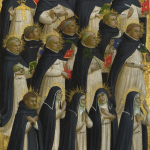Over at the Dominicana blog, Br. Humbert pulls an interesting lesson out of a schoolboy’s startled question to the Dominican friars, “Are you guys Jedis?” After running down a few of the more obvious distinctions (rosaries vs lightsabers), he gets to one of the starkest philosophical differences between the two orders:
[T]here is another way in which both Stoics and Jedi find themselves at odds with Christianity—in their idea that bodily emotions, or passions, are disturbances of the soul, and thus always evil. While the Stoics typically restricted this term to passions unchecked by reason, the Jedi go further and claim that all emotions are to be avoided.
This view is expressed succinctly, thought not very clearly, by the diminutive Jedi Master, Yoda: “Anger, fear, aggression—the Dark Side of the Force are they. Easily they flow, quick to join you in a fight.” The Jedi’s ideal state of mind is what Zeno and his followers called apatheia, which is not quite the same as what we call “apathy,” but is rather a total avoidance of all emotions, such as love and hate, joy and sorrow.
Before I believed in God, I thought Christianity’s anti-stoic, anti-gnostic ideas were one of the worst things about the philosophy. I loved Javert and anything that felt like invulnerability. But the easiest kind of invulnerability to cultivate is indifference. You rob you enemy (maybe a person, maybe simple entropy) of the ability to hurt you by discarding your attachment to everything you value first. Picture the man who preempts an arsonist’s threat by burning down his own house and standing, self-satisfied amid the ashes, perfectly safe because he is already perfectly destitute.
In his essay, Br. Humbert talks about the way that emotion can be a spur to virtuous action (“Sorrow for sin leads to conversion and avoidance of future wrongdoing”), and it seems like the essential difference is that, for the Christian, attachment can cause pain, but that pain is the data that gives us our moral bearings. The model of evil as privation means that we suffer when we feel the absence of something we love and want to live up to.
We may not want to respond to an offence with righteous rage, but we would like still less to lose our awareness that something is off. The Jedi and the Stoics are proof against threat, but they have nothing to use their strength to protect. They’re like emotional bodybuilders, whose power has become more decorative than functional.

